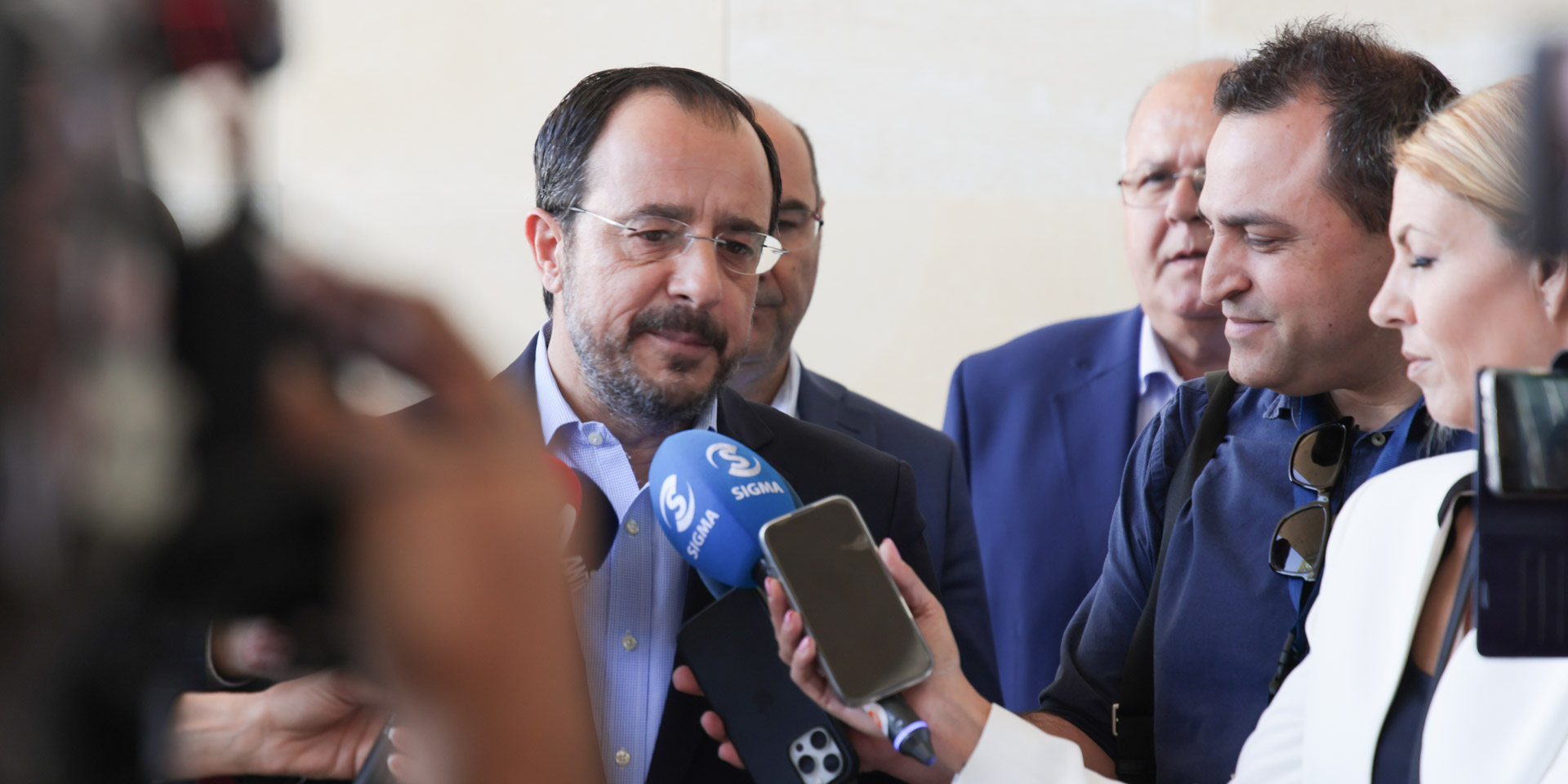President Nikos Christodoulides on Friday refused to be drawn into a position on the “headscarf crisis” which has engulfed the Turkish Cypriot political agenda in recent weeks, stressing that he is not involved in the Turkish Cypriots’ internal affairs.
“I see the developments, I follow the developments in the Turkish Cypriot community. The first thing I want to mention, and we must be particularly careful because there was a general suspicion on the part of the Turkish Cypriot community, is that we do not get involved in the Turkish Cypriot community’s internal affairs,” he said.
He added, “from that point on, it is our obligation, of course, to support our Turkish Cypriot compatriots as citizens of the Republic of Cyprus”.
“We see the developments, they are worrying, the European Union itself has been informed about this effort to control our Turkish Cypriot compatriots, but I would not like to expand on this out of respect for the Turkish Cypriot community’s internal affairs,” he said.
The “headscarf crisis”, as it has been dubbed by local media, has rolled on for more than a month, with the north’s ruling coalition having legalised the wearing of hijabs at public schools, before retracting the law, and then re-legalising it.
On Tuesday, an estimated 13,000 Turkish Cypriots took to the streets to protest against the move, with a broad range of opponents to it including trade unions and pro-federation political parties, as well as less likely figures including Turkish Cypriot leader Ersin Tatar’s wife Sibel Tatar and the TMT veterans’ association.
On the matter of support for Turkish Cypriots, Christodoulides made reference to the 14-point package of measures for Turkish Cypriots he had announced in January last year, though the question of citizenship for children who have one Cypriot and one Turkish parent, the headline measure in that package, remains unsolved.
Eda Hancer Akkor, whose mother is Cypriot and whose father is Turkish, had her attempt to acquire citizenship of the Republic of Cyprus rejected on Thursday, and will now apply to the European Court of Human Rights (ECtHR).
Asked to comment on the matter, Christodoulides said the ECtHR’s decision on the matter will be “fully respected”.
“So, let us await the outcome and we will see this specific issue,” he said.
He also spoke about the ongoing round of discussions with Turkish Cypriot leader Ersin Tatar and denied that there is any “snag” in plans for the next meeting between the pair.
“There is no ‘snag’ anywhere. Yesterday, some dates were sent, some dates were exchanged, and very soon, we will have announcements. Let me remind you that I requested that this meeting take place before Easter,” he said.
He added, “when there is a response from Tatar with specific dates, we will announce it, but yesterday there was a first exchange of dates between the negotiators and then a relevant announcement will be made.”
“There is no problem in this matter.”
Asked if there was any progress made in Thursday’s meeting between Greek Cypriot chief negotiator Menelaos Menelaou and Tatar’s chief negotiator Gunes Onar, he answered in the affirmative, and said that “specific announcements will be made at my level with Tatar in relation to what we discussed”.
He reiterated his intention for a meeting to take place before Easter, which is set to begin in a week.
He also touched on the matter of reported Turkish upset at the construction of the first phase of the Great Sea Interconnector between Crete and Cyprus.
“I am aware of what is happening, we had a relevant conversation with [Greek Prime Minister Kyriakos Mitsotakis], and when there are specific decisions from the Greek government on this issue, relevant announcements will be made,” he said.
He added that he had discussed the matter with European Commission President Ursula von der Leyen and Commissioner for the Mediterranean Dubravka Suica, who visited Cyprus on Friday, and that the EU had expressed its “strong dissatisfaction” with Turkey’s reported distaste for the project.
“Certainly, no actions will be taken on our part to lead to an escalation of the situation, but at the same time, the Republic of Cyprus’ rights cannot be questioned … We will aim to protect the Republic of Cyprus’ rights, as we see what is happening within our exclusive economic zone (EEZ),” he said.






Click here to change your cookie preferences